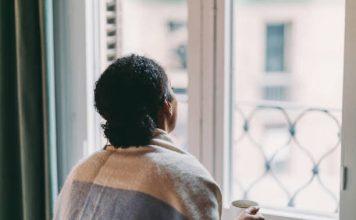Remaining indoors for an extended period can significantly impact an individual’s health and well-being. Prolonged inactivity indoors can result in detrimental physical and mental consequences.
While spending extended time inside may be beneficial for certain individuals, particularly those with weakened immune systems, it is vital to recognize the dangers associated with excessive sedentary behavior.
Extended periods of staying indoors can lead to various physical health issues, such as an elevated risk of developing conditions like diabetes, heart disease, high blood pressure, stroke, and other chronic illnesses.
Research has indicated that individuals who spend excessive time inside are more prone to weight gain, muscular problems, bone density loss, and signs of premature aging.
Here are the disadvantages of staying Indoor For Long :
The lack of physical activity and limited exposure to sunlight can also result in decreased levels of Vitamin D in the body, which is crucial for bone health, immune function, and overall mental well-being.
Mental health is also at risk from prolonged indoor inactivity. Individuals who primarily stay indoors may experience social isolation and loneliness due to reduced direct contact with the outside world, potentially leading to conditions like depression, anxiety, and difficulty in concentration.
Moreover, extended periods of inactivity indoors can diminish creativity and problem-solving skills, as the brain is not stimulated to exercise its creative capacities.
The absence of natural light can have diverse effects on a person’s physical and mental health. Sunlight exposure aids in the body’s synthesis of Vitamin D, essential for regulating sleep patterns and producing serotonin and melatonin hormones.
Low levels of serotonin and melatonin can trigger depression and other mental health disorders.
Furthermore, insufficient light can disrupt crucial sleep cycles, contributing to issues like insomnia, restlessness, and fatigue.
Extended inactivity indoors can also impact respiratory health, as increased indoor air pollution, secondhand smoke, and reduced fresh air circulation can lead to respiratory problems.High levels of dust and mold indoors can exacerbate allergies and asthma.
Moreover, individuals spending prolonged periods indoors are more susceptible to experiencing air hunger or hypoxia, caused by inadequate oxygen levels.
Lastly, staying indoors for an extended duration can result in negative psychological effects. Feelings of environmental confinement and imprisonment can manifest, potentially leading to claustrophobia.
Additionally, individuals accustomed to spending most of their time indoors may become less venturesome and overly reliant on the safety and familiarity of their homes.
In conclusion, extended indoor confinement can have detrimental physical and mental consequences, including an increased risk of chronic illnesses, mental health issues, and respiratory ailments. Individuals may also face challenges such as light deprivation, feelings of confinement, and a decline in creative abilities. Striking a balance between indoor time and outdoor activity is essential to uphold optimal physical and mental well-being.
